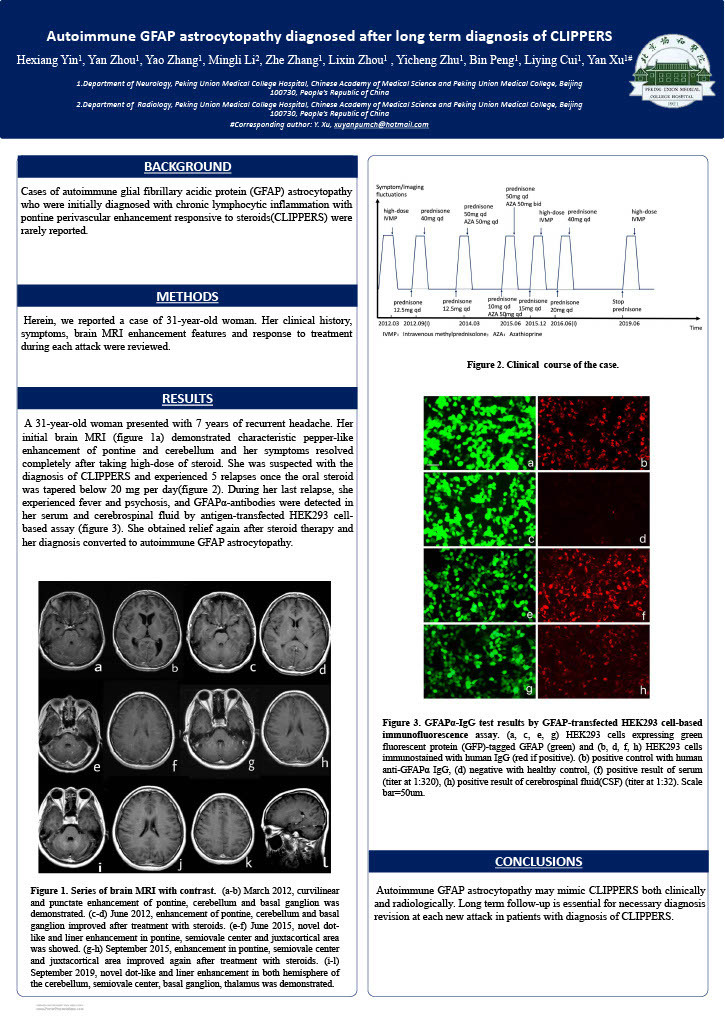A case of autoimmune GFAP astrocytopathy diagnosed after long term diagnosis of CLIPPERS
Abstract
Background:
Cases of autoimmune glial fibrillary acidic protein (GFAP) astrocytopathy who were initially diagnosed with chronic lymphocytic inflammation with pontine perivascular enhancement responsive to steroids(CLIPPERS) were rarely reported.
Case presentation:
A 31-year-old woman presented with 7 years of recurrent headache. Her brain MRI 7 years ago demonstrated characteristic pepper-like enhancement of pontine and cerebellum and her symptoms resolved completely after taking high-dose of steroid. She was suspected with the diagnosis of CLIPPERS and experienced 5 relapses once the oral steroid was tapered below 20 mg per day. During her last relapse, she experienced fever and psychosis, and GFAPα-antibodies were detected in her serum and cerebrospinal fluid by antigen-transfected HEK293 cell-based assay (indirect immunofluorescence assay). She obtained relief again after steroid therapy and her diagnosis converted to autoimmune GFAP astrocytopathy.
Conclusions:
Autoimmune GFAP astrocytopathy may mimic CLIPPERS both clinically and radiologically. Long term follow-up is essential for necessary diagnosis revision at each new attack in patients with diagnosis of CLIPPERS.

